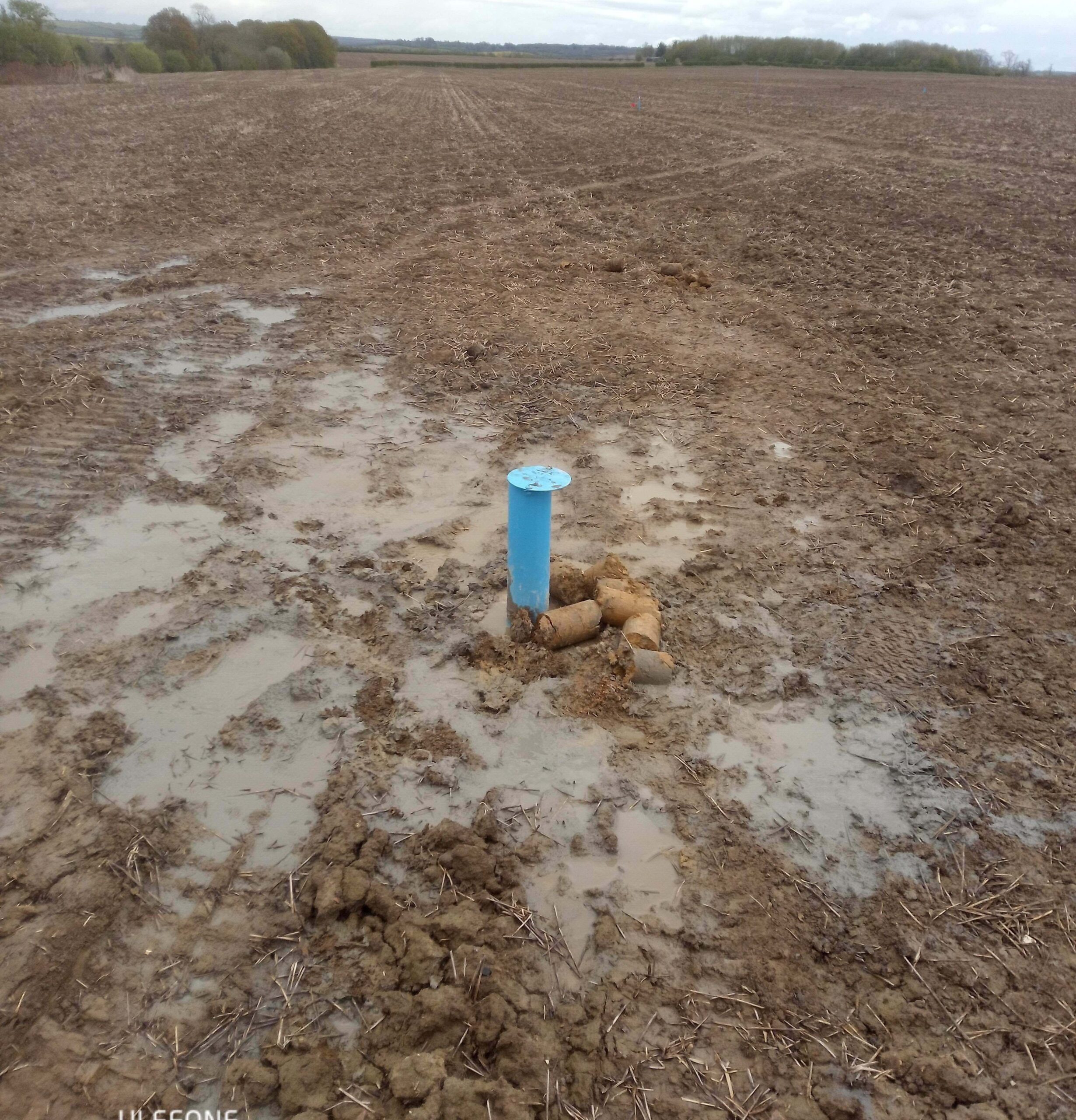It’s not just land contamination projects that require controlled waters risk assessments, in addition to carrying out Detailed Quantitative Risk Assessments for the more usual residential and commercial developments, GRM have been involved with undertaking a feasibility groundwater risk assessment for a potential cemetery. As with land contamination risk management guidance (LCRM) the Environment Agency has a tiered approach to risk assessments for cemeteries. This means that sites with a higher risk need a more detailed risk assessment than low risk sites.
Following completion of a Tier 1 Assessment with detailed desk study and qualitative risk assessment, GRM then proceeded to undertake a site investigation and Tier 2 risk assessment in line with the Environment Agency guidance to confirm ground conditions (including depth to bedrock) and monitor groundwater levels, with rising head tests to monitor recovery rates and determine permeability.
Key considerations included the groundwater vulnerability assessment and scale of the proposal (anticipated number of burials per year). To ensure the site would not cause groundwater pollution, groundwater monitoring was an important factor since the base of a grave should be at least 1m above the highest anticipated annual groundwater level and a good geological knowledge of weathering profiles was necessary as graves should not be placed in unaltered or unweathered bedrock. Any investigation needed to be at least 1 metre below the deepest proposed grave.
The site team had to negotiate some tricky access issues, not helped by the awful weather conditions which preceded the fieldwork (recent heavy rain + ploughed fields = a difficult site).
GRM’s resident Hydrogeologist Sonia was then able to produce hydrographs, estimate the pollutant loading and produce a flux model to assess the risk posed to groundwater caused by the leachate that is produced as the corpses decompose over a 10 year period (lovely!!).
The information was used to refine the conceptual site model and whilst some constraints were identified, GRM made recommendations which would mitigate the constraints.
If you have any development projects that may require detailed or specific site investigation services, then please get in touch to find out how we can help save both time and costs. Please use your main point of contact at GRM or for new enquiries please email richard.upton@grm-uk.com or call 01283 551249.


